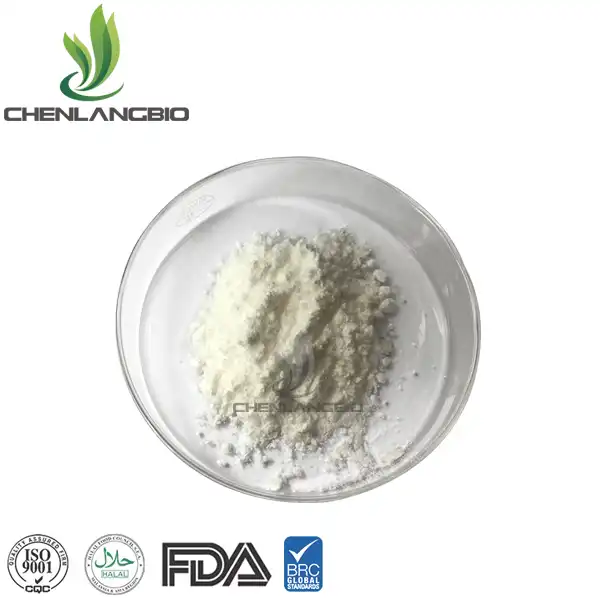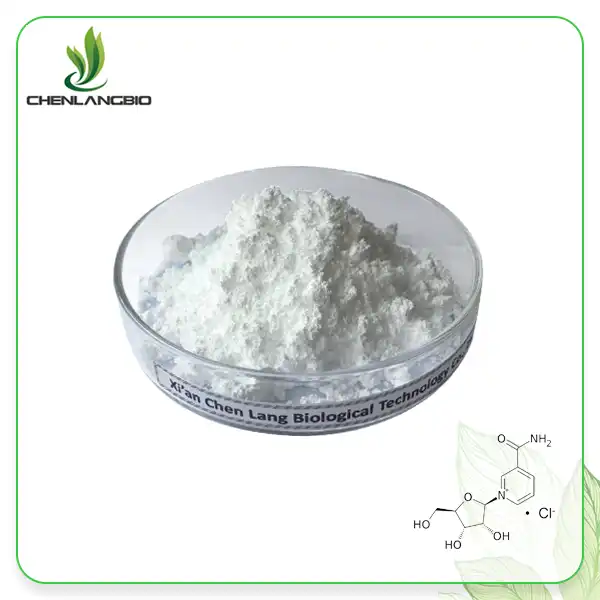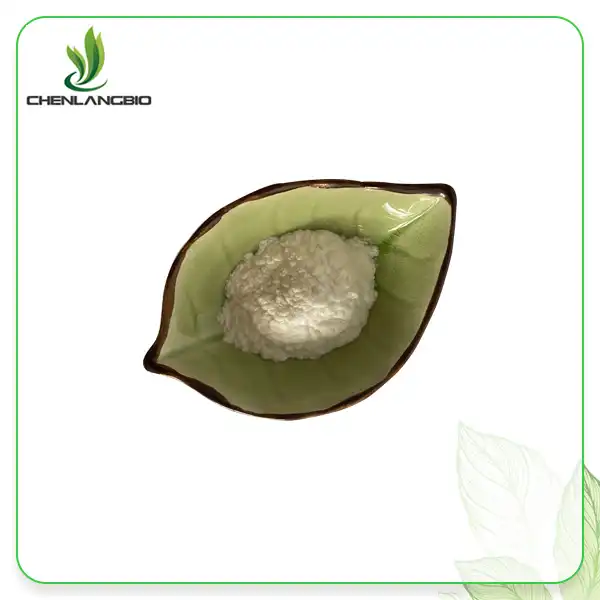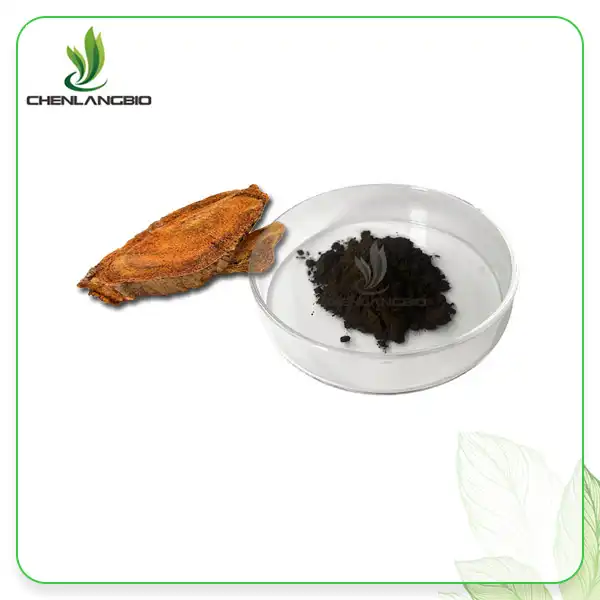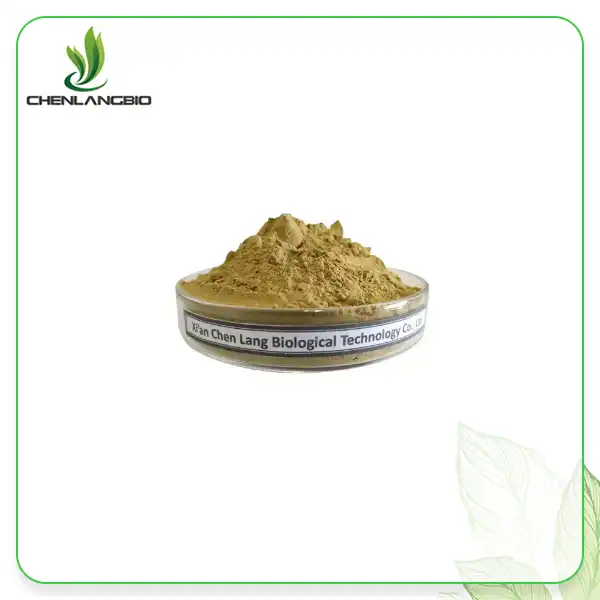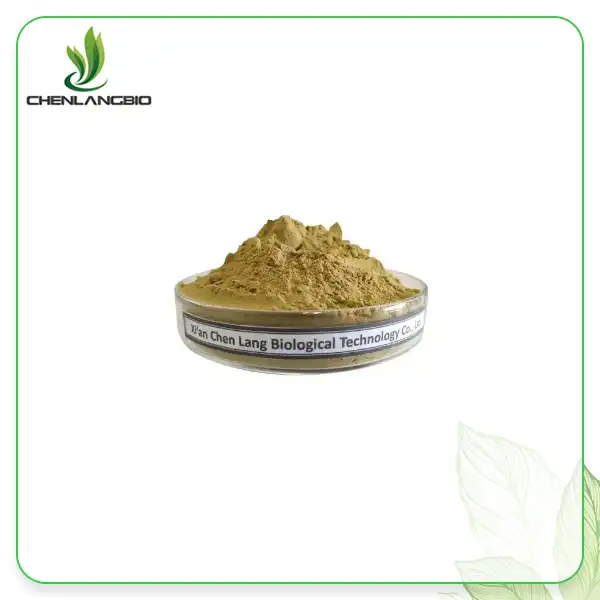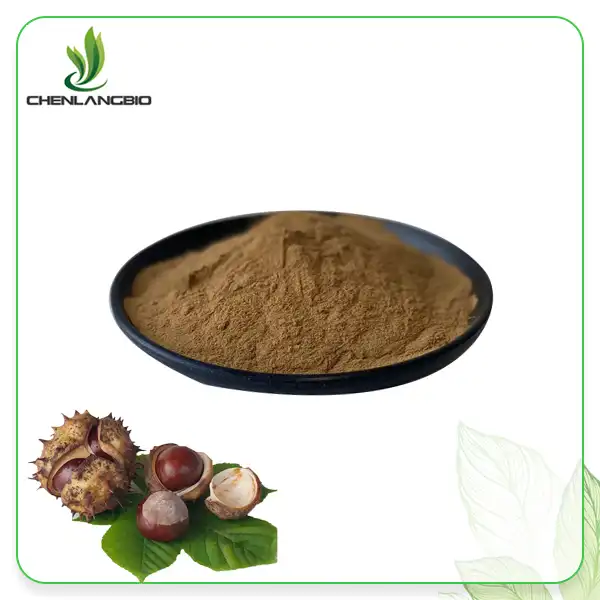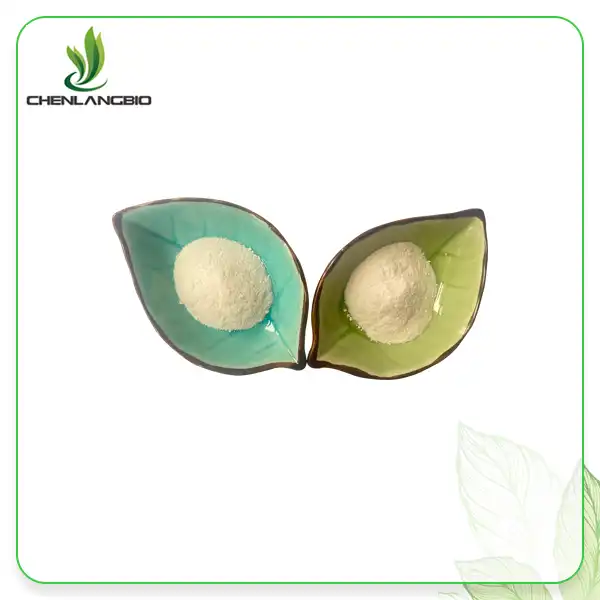How Does High-Purity Silymarin in Milk Thistle Extract Support Liver Health?
2025-08-04 10:10:07
The liver serves as the body's primary detoxification center, processing toxins and maintaining metabolic balance. Among natural hepatoprotective compounds, silymarin from stands out as one of the most extensively researched and clinically validated substances. This bioactive compound, derived from the seeds of Silybum marianum, has gained significant recognition for its remarkable ability to support liver health through multiple mechanisms. High-purity silymarin in milk thistle extract provides comprehensive liver protection by neutralizing free radicals, stabilizing cellular membranes, and enhancing the liver's natural regenerative processes. Understanding how this powerful compound works at the cellular level reveals why it has become a cornerstone of liver health supplementation worldwide.
The Biological Mechanisms of Silymarin in Liver Protection
Antioxidant Properties and Free Radical Scavenging
Silymarin's primary mechanism of hepatoprotection lies in its exceptional antioxidant capabilities. The liver constantly generates reactive oxygen species (ROS) during its metabolic processes, particularly when detoxifying harmful substances. Milk Thistle Extract containing high-purity silymarin acts as a potent free radical scavenger, neutralizing these damaging molecules before they can cause cellular damage. Research demonstrates that silymarin's antioxidant activity is significantly more powerful than vitamin E, making it uniquely effective in protecting hepatocytes from oxidative stress. The compound's ability to regenerate other antioxidants, such as glutathione, further amplifies its protective effects. This comprehensive antioxidant network created by Milk Thistle Extract helps maintain cellular integrity and prevents the cascade of oxidative damage that can lead to liver inflammation and fibrosis.
Membrane Stabilization and Cellular Protection
The hepatoprotective action of silymarin extends beyond antioxidant activity to include direct membrane stabilization. Milk Thistle Extract works by altering the structure of hepatocyte membranes, making them less permeable to toxins and preventing their cellular entry. This membrane-protective effect is particularly important when the liver encounters hepatotoxic substances such as alcohol, medications, or environmental pollutants. Silymarin incorporates into the lipid bilayer of cell membranes, creating a barrier that maintains cellular integrity while allowing normal metabolic processes to continue. Additionally, the compound stimulates the activity of membrane-bound enzymes responsible for maintaining cellular homeostasis. This dual action of milk thistle extract—preventing toxin entry while enhancing cellular function—provides comprehensive protection against various forms of liver damage.
Protein Synthesis Enhancement and Cellular Regeneration
One of the most remarkable properties of silymarin is its ability to stimulate protein synthesis in hepatocytes, thereby promoting liver regeneration. Milk Thistle Extract enhances the activity of RNA polymerase I, which is crucial for ribosomal RNA synthesis and subsequent protein production. This increased protein synthesis capacity allows damaged liver cells to repair themselves more effectively and supports the formation of new hepatocytes to replace those that have been lost. The regenerative effects of silymarin are particularly beneficial in chronic liver conditions where ongoing cellular damage occurs. Studies have shown that patients treated with high-purity Milk Thistle Extract demonstrate improved liver function markers and enhanced tissue repair. This regenerative capacity, combined with the compound's protective effects, makes silymarin an invaluable tool for maintaining long-term liver health.
Clinical Applications and Therapeutic Benefits
Treatment of Alcoholic Liver Disease
Alcoholic liver disease represents one of the most common applications for Milk Thistle Extract supplementation. Chronic alcohol consumption leads to the accumulation of toxic metabolites, oxidative stress, and progressive liver damage. Silymarin addresses these pathological processes through multiple pathways, making it particularly effective in this context. The compound reduces alcohol-induced lipid peroxidation, prevents the depletion of glutathione stores, and maintains mitochondrial function in hepatocytes. Clinical studies have demonstrated that patients with alcoholic hepatitis who received high-purity Milk Thistle Extract showed significant improvements in liver function tests, including reduced transaminase levels and improved bilirubin metabolism. The anti-inflammatory properties of silymarin also help reduce the chronic inflammatory response associated with alcoholic liver disease, potentially slowing disease progression and improving patient outcomes.
Non-Alcoholic Fatty Liver Disease Management
Non-alcoholic fatty liver disease (NAFLD) has become increasingly prevalent in modern society, often associated with metabolic syndrome and insulin resistance. Milk thistle extract has shown promising results in managing this condition through its effects on lipid metabolism and insulin sensitivity. Data indicate that silymarin treatment correlated with reduced insulin resistance and decreased fasting insulin levels significantly. The compound helps regulate hepatic glucose production and improves lipid metabolism, reducing the accumulation of fat in liver cells. Additionally, silymarin's antioxidant properties help mitigate the oxidative stress associated with fatty liver disease, preventing the progression from simple steatosis to steatohepatitis. Patients receiving Milk Thistle Extract supplementation have demonstrated improved liver enzyme levels and better metabolic profiles, making it a valuable adjunct therapy for NAFLD management.
Viral Hepatitis Support and Immune Modulation
The immunomodulatory properties of silymarin make Milk Thistle Extract particularly valuable in supporting patients with viral hepatitis. While not a direct antiviral agent, silymarin enhances the liver's ability to cope with viral infections by stabilizing hepatocyte membranes and reducing inflammatory responses. The compound helps maintain liver function during antiviral treatment, potentially reducing the hepatotoxic effects of medications used to treat hepatitis B and C. Research has shown that patients receiving Milk Thistle Extract alongside conventional antiviral therapy experience better tolerance to treatment and improved liver function parameters. The compound's ability to modulate immune responses may also help prevent the excessive inflammatory reactions that can contribute to liver damage in viral hepatitis. This supportive role makes silymarin an important complementary therapy in comprehensive hepatitis management strategies.
Quality Standards and Manufacturing Excellence
Advanced Extraction and Purification Processes
The effectiveness of Milk Thistle Extract depends heavily on the quality of the extraction and purification processes used in its manufacture. High-purity silymarin requires sophisticated extraction techniques that preserve the bioactive compounds while removing unwanted impurities. Advanced methods such as dynamic countercurrent extraction and column separation technology ensure optimal yield and purity of the final product. The use of membrane separation technology and microwave drying techniques further enhances the quality of milk thistle extract by preventing degradation of heat-sensitive compounds. These advanced manufacturing processes result in standardized extracts with consistent potency and bioavailability. Quality control measures, including high-performance liquid chromatography (HPLC) analysis, ensure that each batch meets stringent purity standards. The commitment to manufacturing excellence ensures that healthcare providers and patients receive Milk Thistle Extract of the highest quality and therapeutic value.
Standardization and Quality Assurance
Standardization of Milk Thistle Extract is crucial for ensuring consistent therapeutic effects and reliable clinical outcomes. High-quality extracts are standardized to contain a specific percentage of silymarin, typically 80% or higher, ensuring predictable bioactivity. Comprehensive quality assurance protocols include testing for heavy metals, pesticide residues, and microbial contamination to guarantee product safety. The implementation of Good Manufacturing Practices (GMP) in production facilities ensures that every aspect of manufacturing meets international quality standards. Regular batch testing and stability studies confirm that Milk Thistle Extract maintains its potency throughout its shelf life. Certificate of analysis documentation provides transparency regarding the exact composition and purity of each product lot. This rigorous approach to quality assurance ensures that healthcare professionals and consumers can rely on the consistency and safety of Milk Thistle Extract products.
Sustainable Sourcing and Raw Material Quality
The quality of Milk Thistle Extract begins with the careful selection of raw materials from sustainably managed sources. Premium milk thistle seeds are harvested at optimal maturity to ensure maximum silymarin content and bioactivity. Environmental factors such as soil quality, climate conditions, and harvesting techniques significantly impact the final product's therapeutic value. Sustainable farming practices not only ensure consistent quality but also protect the environment and support local communities. Rigorous inspection protocols verify that raw materials meet strict quality standards before processing begins. The integration of sustainable sourcing with advanced manufacturing creates Milk Thistle Extract that delivers both therapeutic efficacy and environmental responsibility. This commitment to quality from farm to finished product ensures that patients receive the full benefits of this remarkable hepatoprotective compound.
Conclusion
High-purity silymarin in milk thistle extract represents a scientifically validated approach to supporting liver health through multiple complementary mechanisms. Evidence exists that milk thistle may be hepatoprotective through a number of mechanisms: antioxidant activity, toxin blockade at the membrane level, enhanced protein synthesis, antifibriotic activity, and possible anti-inflammatory or immunomodulating effects. The compound's ability to provide comprehensive liver protection while promoting cellular regeneration makes it an invaluable tool in both preventive and therapeutic applications. As our understanding of liver health continues to evolve, silymarin remains at the forefront of natural hepatoprotective compounds, offering hope for improved outcomes in various liver conditions.
Ready to experience the superior quality and therapeutic benefits of premium Milk Thistle Extract?
As a leading Milk Thistle Extract manufacturer with over 600 tons of annual production capacity, CHENLANGBIO stands as your trusted Milk Thistle Extract supplier for all your needs. Our state-of-the-art Milk Thistle Extract factory utilizes advanced extraction technologies and maintains the highest quality standards through comprehensive certifications including ISO 9001-2015, ISO 22000, and GMP compliance. Whether you require Milk Thistle Extract wholesale quantities or specialized formulations, our experienced team is ready to provide exceptional products and services tailored to your specific requirements. Contact us today at admin@chenlangbio.com to discover how our premium Milk Thistle Extract can enhance your product portfolio and support your customers' liver health goals.
References
1. Abenavoli, L., Capasso, R., Milic, N., & Capasso, F. (2010). Milk thistle in liver diseases: past, present, future. Phytotherapy Research, 24(10), 1423-1432.
2. Polyak, S. J., Morishima, C., Lohmann, V., Pal, S., Lee, D. Y., Liu, Y., ... & Ferenci, P. (2010). Identification of hepatoprotective flavonolignans from silymarin. Proceedings of the National Academy of Sciences, 107(13), 5995-6000.
3. Razavi, B. M., Lookian, F., & Hosseinzadeh, H. (2017). Protective effects of green tea and milk thistle on liver diseases. Current Pharmaceutical Design, 23(34), 5119-5130.
4. Saller, R., Brignoli, R., Melzer, J., & Meier, R. (2008). An updated systematic review with meta-analysis for the clinical evidence of silymarin. Forschende Komplementärmedizin, 15(1), 9-20.
Send Inquiry
Related Industry Knowledge
- Boost Antioxidant Power with Laminaria Japonica Extract
- 4 Key Applications of Asiaticoside Powder in Wellness
- Is Ascorbyl Tetraisopalmitate Safe During Pregnancy?
- How Does Spermidine Interact with Nitric Oxide Synthase (nNOS)?
- Guide to Sodium Methylesculetin Acetate in Dietary Supplements
- What is the Best Way to Store Mung Bean Peptide Powder
- How Should Dimethylmethoxy Chromanyl Palmitate Be Applied
- Can I Mix Niacinamide with Bakuchiol
- What Are The Benefits Of Using Hyaluronic Acid Powder
- Apple Polyphenol Extract Benefits



